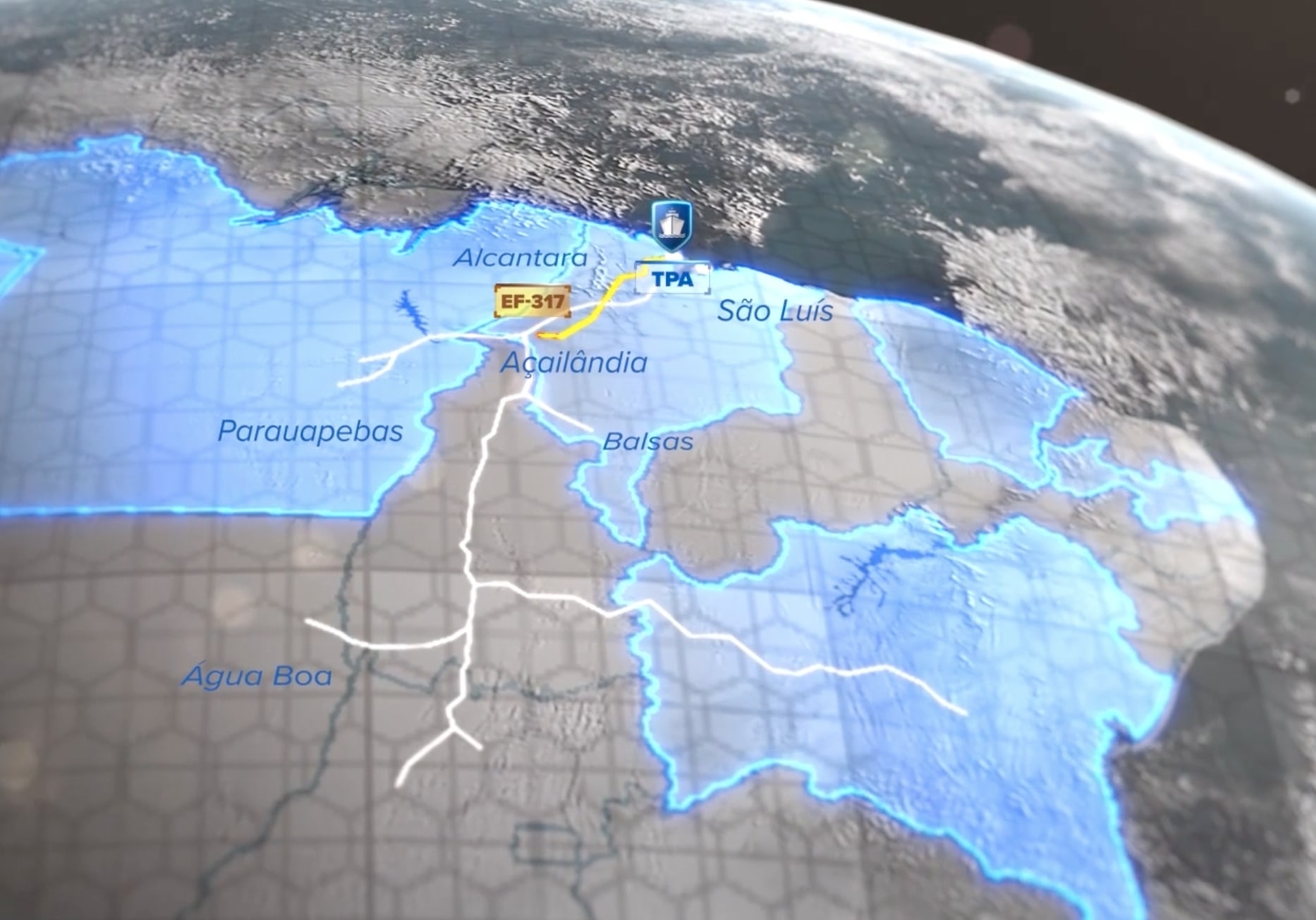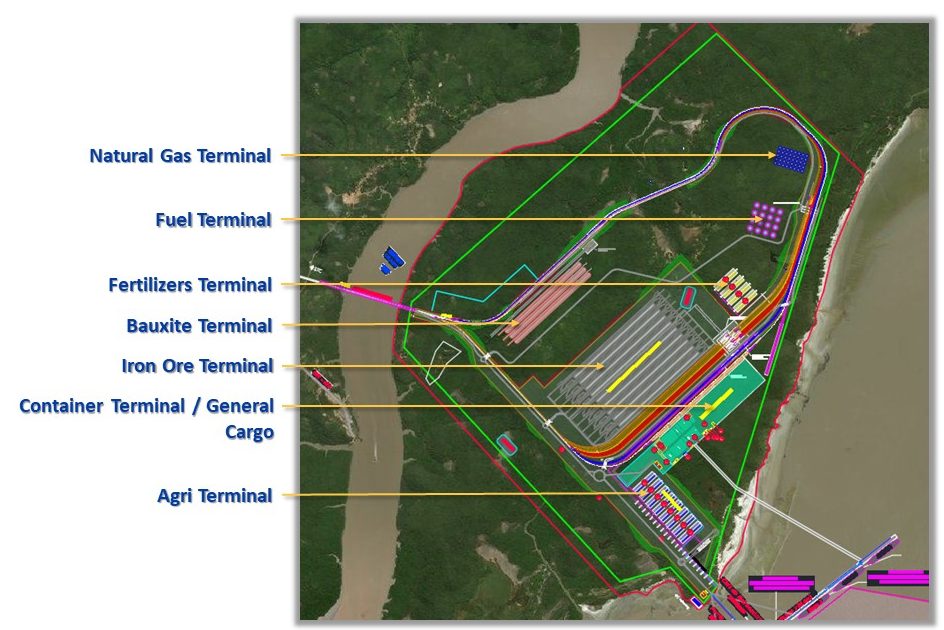Deutsche Bahn to operate new 520-km line for port terminal in Brazil

Deutsche Bahn (DB) and Brazilian logistics firm Grão-Pará Maranhão (GPM) signed a 3-billion-euro agreement for the Alcantara Port Terminal (APT), in Sao Luis, northeastern Brazil. According to the agreement, DB will also become the rail operator of the new railway line connecting the terminal with one of Brazil’s main railways.
More than half of the investment will be for the rail system and the project for the Maranhao Railway (EF-317) line. The line will run for 520 kilometres connecting the APT with Açailândia, providing a connection to the North-South Railway. As GPM highlighted, the new line “will be one of the main modes used to transport the production of grains and ores” to the APT.
According to GPM, in addition to being directly connected to the terminal, the EF-317 railway will be 50 kilometres shorter than the current routes running from Sao Luis to Açailândia. The new railway will in fact serve as an alternative to the Carajas Railway, facilitating the flows of grains, ores, fertilizers, fuels, and general cargo.

Rail at the centre of the Alcantara Port Terminal
The APT will cover a surface of 12 million square metres and is expected to be operative by 2024, will be built west bank of São Marcos Bay. The need for a new facility comes from the fact that the port of Sao Marcos is reaching its capacity limits, according to GPM. The terminal will be equipped with a container terminal and facilities to handle various types of cargo, including ores, fuels, natural gas, agricultural products, and fertilisers.
The terminal will also have a rail link to a facility that will produce clean energy and green hydrogen. The enrgy will be deployed to operate the port and the railway, while the hydrogen will be used to make fertilisers. The fertilisers produced can be used as return cargo on the way from the port to Açailândia and delivered via rail to agricultural production areas. The railway, as DB ECO stated, will be operated in open access mode, meaning that the operator, in this case DB, takes full commercial risk.

Also read:






These, honourable partners, both aware, as well of modern science of logistics, and how current “state of the art” railway standard, now is
plaguing IM:s and clients.
(Just wonder how Tender Documents, Quality Program and guarantees, etc., were written…)
Now, at transports, more than ever, quality pays!
Regrettably, railways now is the costly, not sustainable, Weak Link of supply chains – and, as short of redundancy, not upgradable, current EU standard not should be constructed, anywhere!